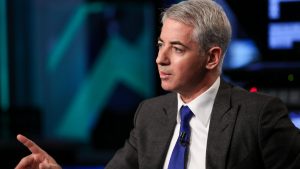Share this page:
Aside from rent or mortgage payments and utility bills, our cars are usually our biggest expenses. So, you’d think we’d do whatever we could to keep our motoring costs as low as possible, wouldn’t you? Despite this, around 17 million people in the UK are overspending on their car insurance.
If you want to know how you can cut your car insurance costs, read on.
The simple mistake that makes people overpay
We’re all very busy and are often trying to cram far too many tasks into any one day. Therefore, when your car insurance provider gives you the option to auto-renew your policy, it can seem like a great idea.
MoneySuperMarket’s car insurance research estimates that 17 million drivers let their car insurance auto-renew last year, costing a total of over £830 million.
The price comparison site found that 52% of drivers let their insurance renew automatically in 2021. This is a 27% increase from 2020, when 41% auto-renewed their car insurance. The reasons drivers gave for doing this varied.
Of those surveyed, a quarter (25%) did look around but stayed with their existing provider as it was easier. This is a 20% increase from last year.
Meanwhile, 14% didn’t switch because they believed that changing car insurance provider takes too much time or effort, while 19% don’t believe there are significant savings to be made.
It’s true that auto-renewal saves you time and the hassle of shopping around. However, as companies increase their premiums, it can cost you a lot more.
Why auto-renewing your car insurance is dangerous
Drivers that auto-renewed their car insurance saw their premiums increase by £49 on average. This is a significant amount, particularly when budgets are being squeezed by the cost of living crisis.
This is a 17% increase from 2020 when drivers claimed to see an average increase of £42.
Looking between regions, drivers in London reported the biggest average rises to their premiums at £79, followed by drivers in Northern Ireland (£61) and drivers in the West Midlands (£60). Welsh drivers saw their premiums increase the least (£39).
The research shows that drivers are still opting to auto-renew despite new rules from the UK financial regulator, the FCA. These are designed to ensure providers highlight a customer’s previous year’s premium price against their renewal price. The results showed that 48% of drivers did not recall seeing these notifications.
Of those that did remember seeing the notices, 72% said they did not encourage them to shop around.
How much you could save by shopping around
The exact amount will vary depending on your current car insurance policy and what other providers are offering.
However, it’s likely other providers will at least match your current price. This means you’ll save the auto-renewal premium – so an average of £49 in 2021. With inflation being so high currently, this amount could be even larger for those updating their car insurance policy later this year.
The experts’ view
Sara Newell, car insurance expert at MoneySuperMarket, said: “Last year, more drivers renewed their car insurance with their existing provider than did not.”
These motorists reported average premium increases of £49. This means that collectively, UK drivers overspent on their premiums to the tune of an estimated £830 million.
“While we have seen the introduction of the FCA’s new rules on price walking – which are intended to level the playing field for consumers – it’s important that drivers don’t rely on such measures to reduce their premiums,” Sara warned.
“We’ll monitor the impact of the FCA’s new measures over the coming months, but the fact remains that shopping around is always going to be the most effective way of keeping your costs down.”
Was this article helpful?
YesNo
About the author
Katie is a financial journalist and personal finance writer. She writes on a range of topics including investing, insurance, and managing your money.
Share this page:
Some offers on The Motley Fool UK site are from our partners — it’s how we make money and keep this site going. But does that impact our ratings? Nope. Our commitment is to you. If a product isn’t any good, our rating will reflect that, or we won’t list it at all. Also, while we aim to feature the best products available, we do not review every product on the market. Learn more here. The statements above are The Motley Fool’s alone and have not been provided or endorsed by bank advertisers. John Mackey, CEO of Whole Foods Market, an Amazon subsidiary, is a member of The Motley Fool’s board of directors. The Motley Fool UK has recommended Barclays, Hargreaves Lansdown, HSBC Holdings, Lloyds Banking Group, Mastercard, and Tesco.
This post was originally published on Motley Fool






